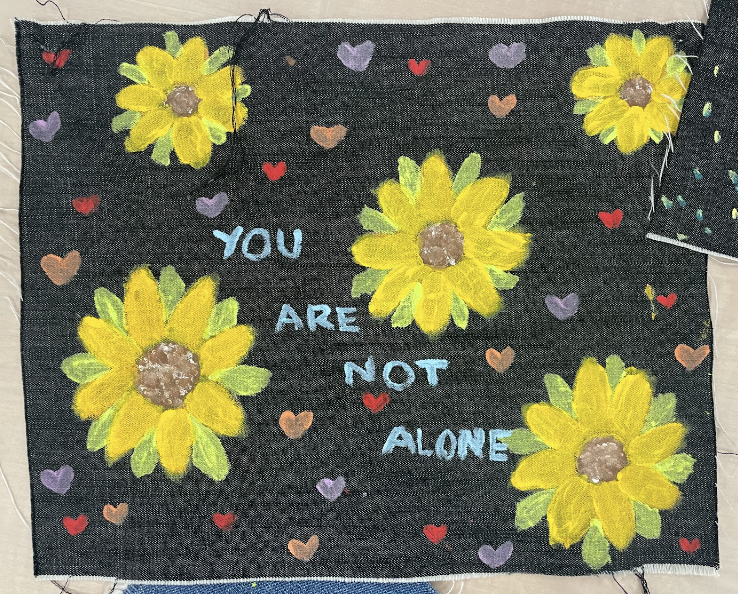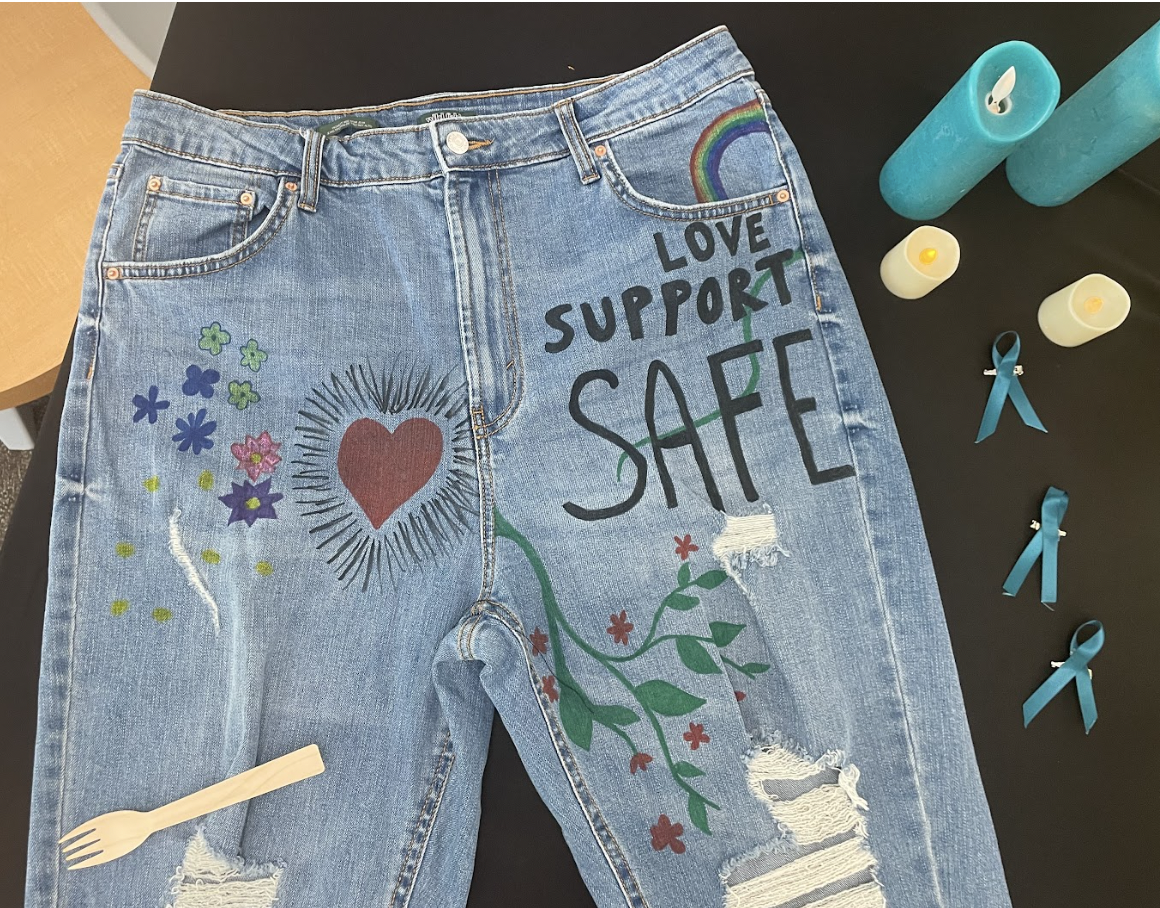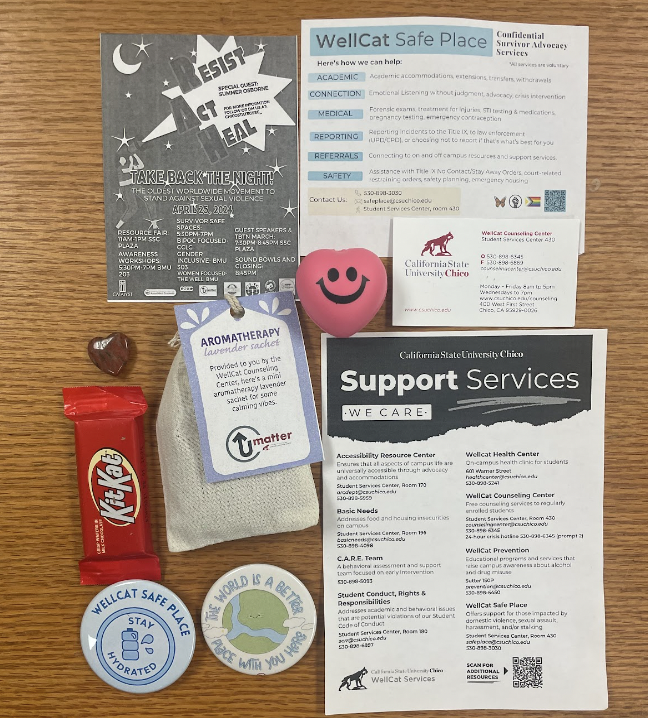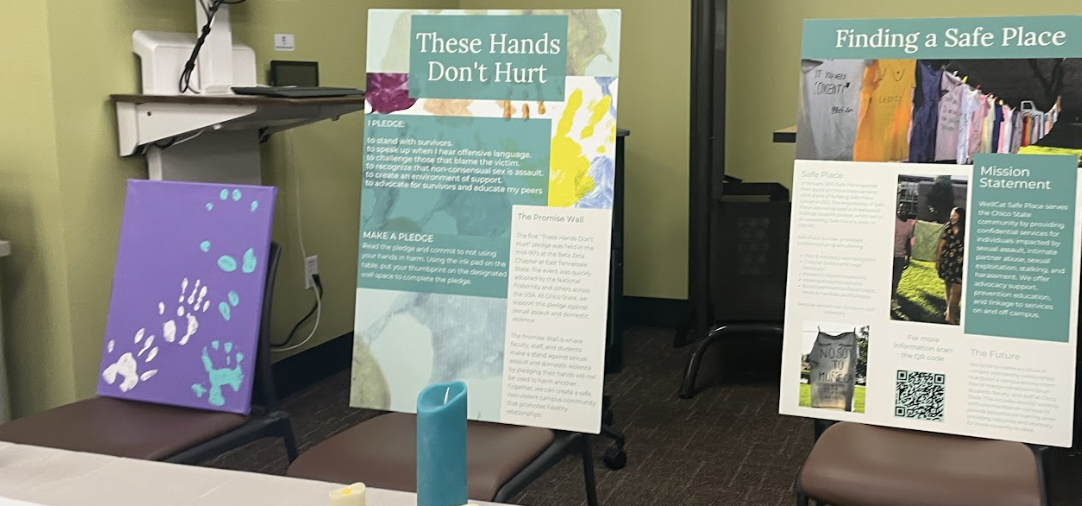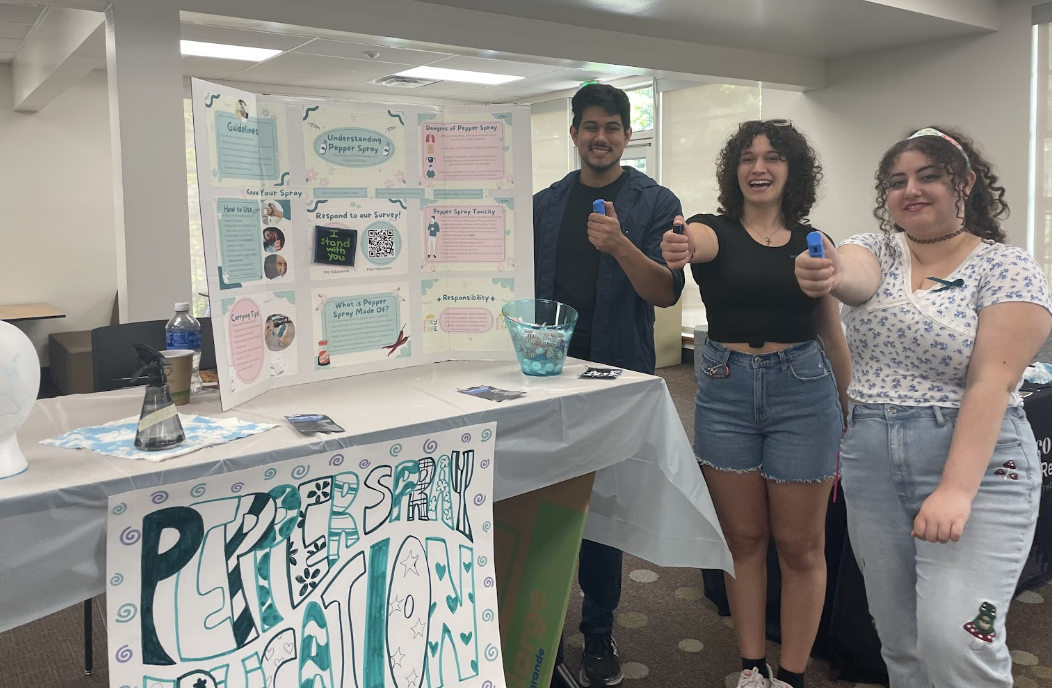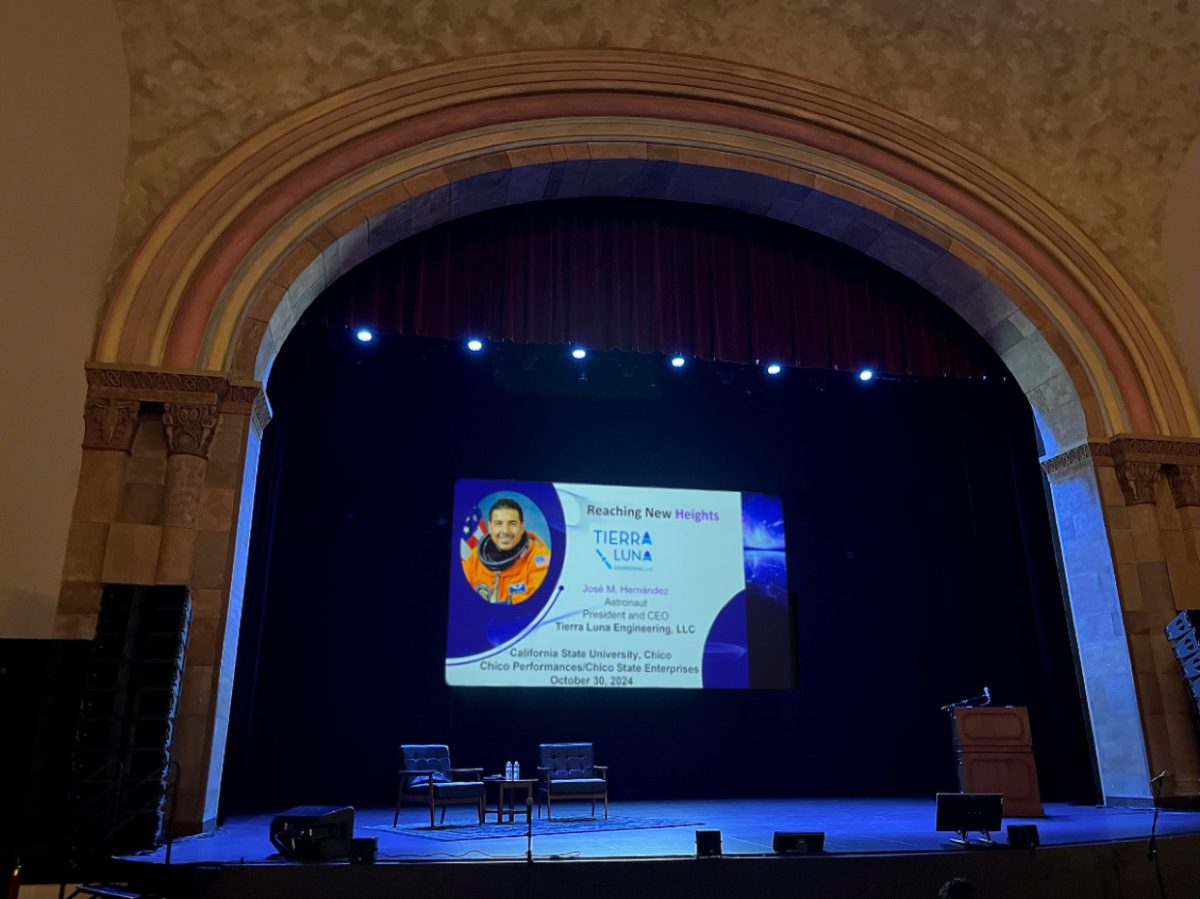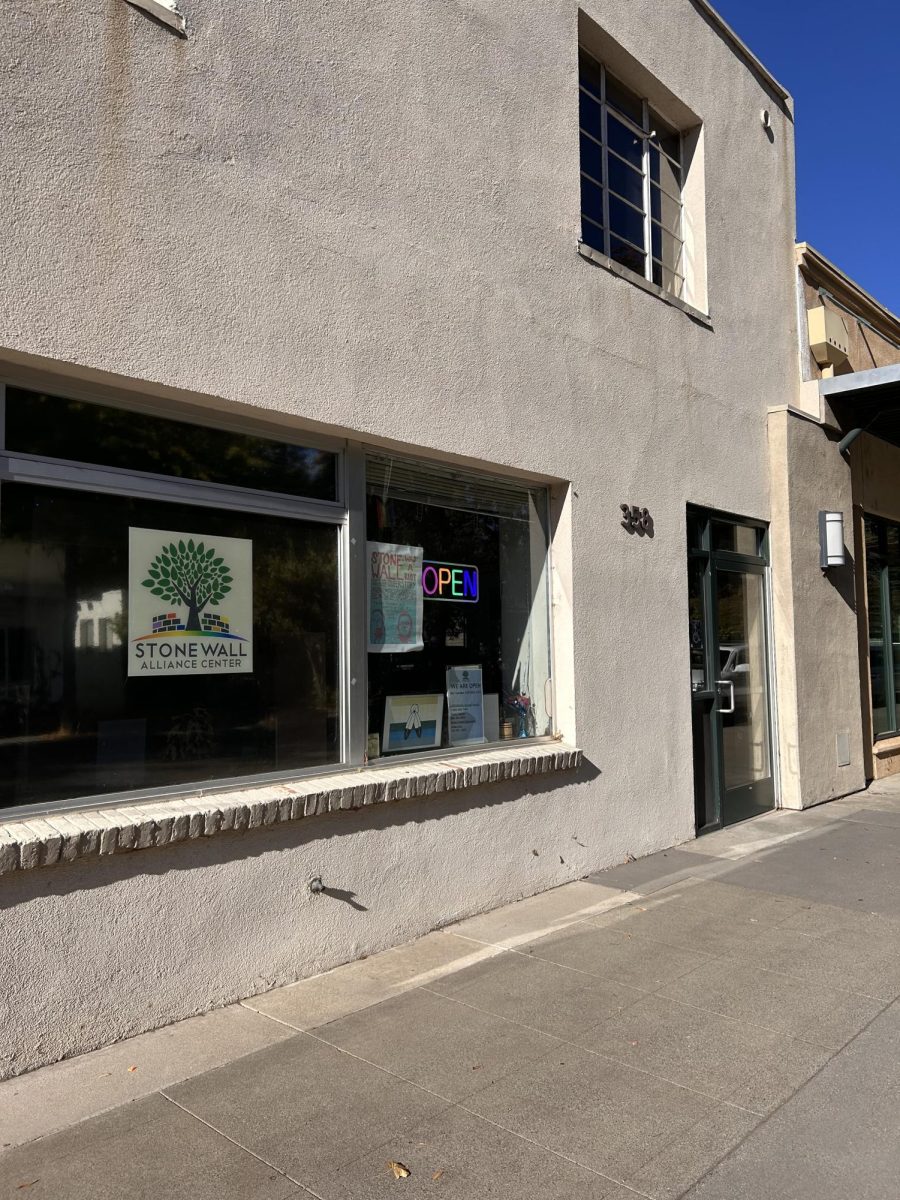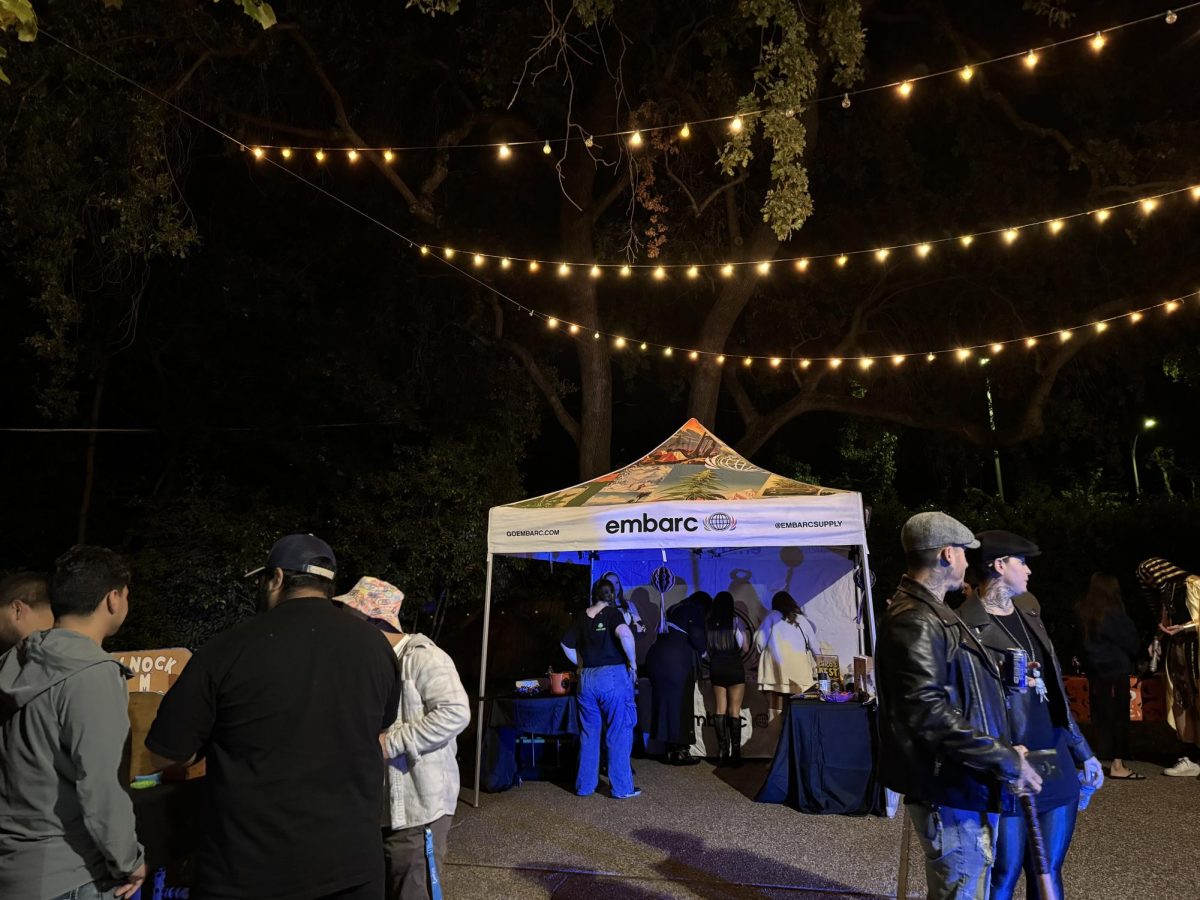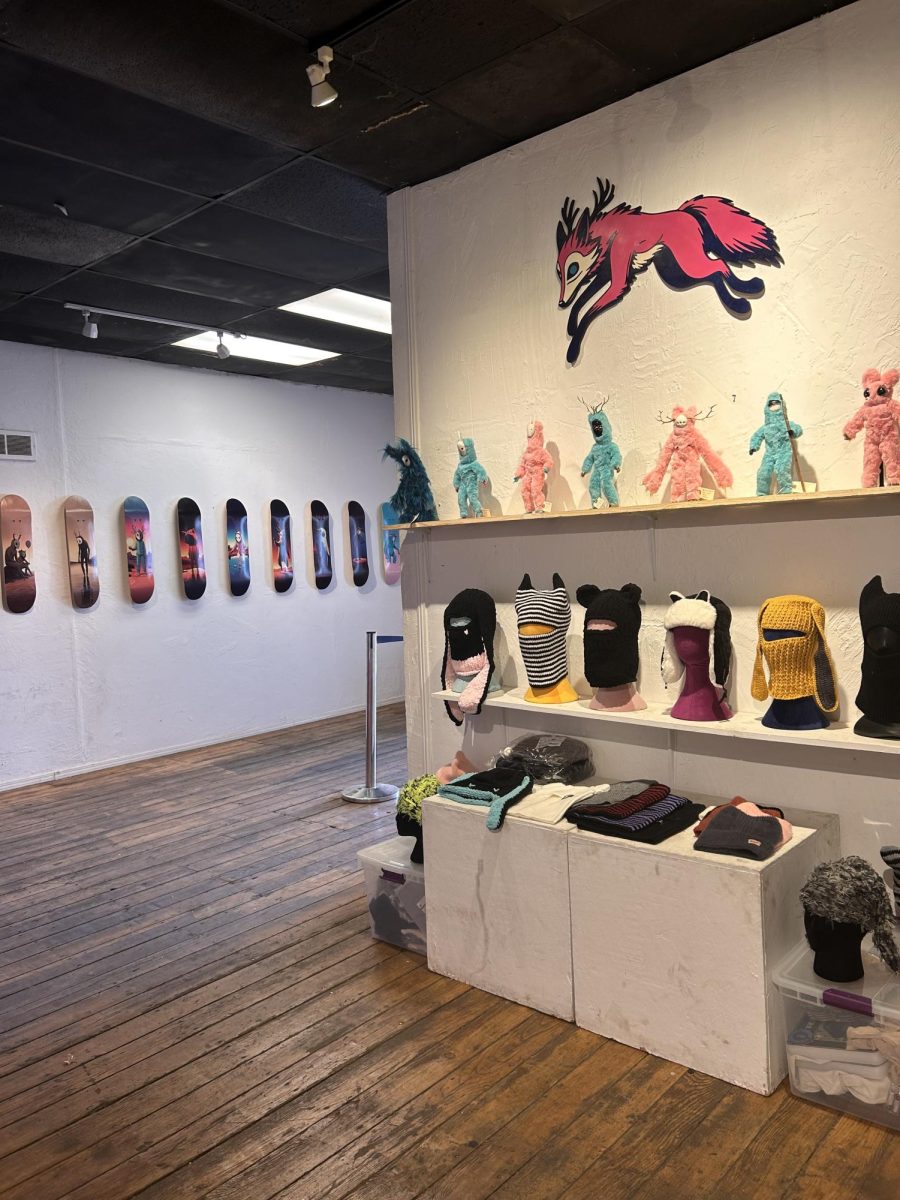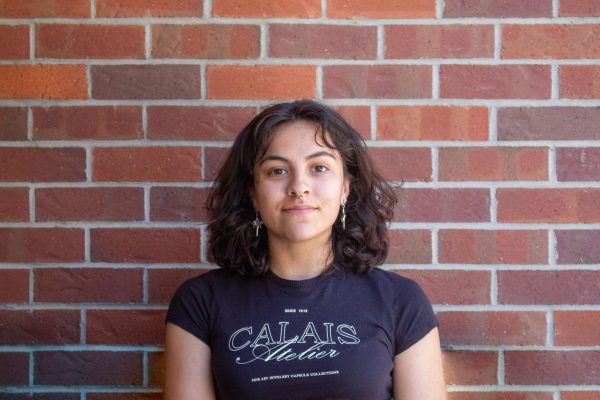WellCat Safe Place honored Denim Day with a resource fair and museum exhibit on Wednesday.
The event took place entirely inside Selvester’s Cafe, with the museum exhibit featured on the walls and around the booths of different organizations.
Denim Day is an international holiday where participants are encouraged to wear denim in solidarity with victims of sexual assault and to raise awareness about the prevalence of sexual violence in society.
The choice of denim comes from 1998 when an Italian court appealed a rape conviction in part due to the fact the victim was wearing jeans.
Cutline: 1:
The door inviting passersby into the space was decorated with blue and white balloons and covered with squares of denim with painted-on illustrations and messages. Near the entrance was a table offering drinks and food—which was heavily frequented throughout—and a table holding self-care gift bags for visitors to take home.
Throughout the day, around 80 students from 12 different organizations attended the event to spread awareness about the resources they offer to students in crisis.
The vast amount of organizations represented at the Resource Fair was purposeful. Katie Callahan, Student Lead at WellCat Safe Place, explained that students were able to see what resources are available to them in the event of a crisis without putting themselves at risk of triggering content.
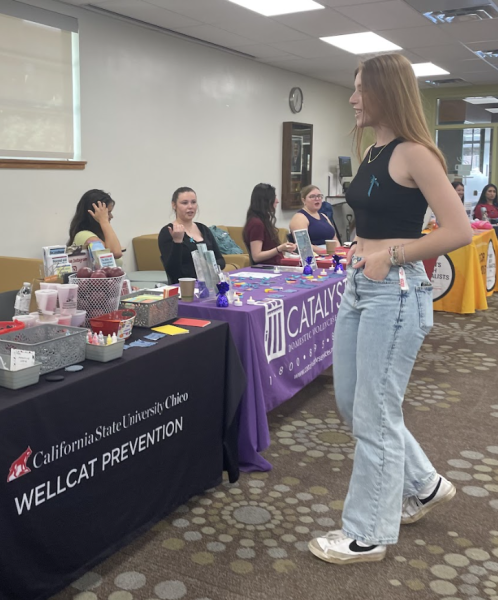
“It’s a very difficult thing for people to talk about, so I wanted it to be very low participation,” she said. “People can come in and can talk to people if they want to, go to the resource tables if they want to, look at the museum exhibit all on their own terms so they can do what they have the capacity to do.”
Booths were set up around the perimeter of the room, with the museum displayed in the back and behind some of the tables.
The museum featured information about the MeToo movement, the history of Denim Day and women’s rights as a whole. In addition to the museum, art supplies, like paint and stamps, were available to decorate canvases and squares of denim at the back table.
Kirstin Draves, a student who earned her associate degree online and is now experiencing campus in person, said that events like these make things feel safer.
“I’m really glad to see more awareness being spread and more public support. Support used to be kind of kept secret,” she said.
A vast array of on- and off-campus resources were present at the event. They provided information for attendees on what they provide and how to contact them.
Callahan noted that victims need access to a variety of different resources to help address the multifaceted fallout that occurs after sexual assault or intimate partner violence.
“It intersects all other parts of your life as well,” she said.“If you need emergency housing because your partner is abusive, Basic Needs can help you. If you need to file a Title IX report, the Office of Equity and Diversity can aid you in that or Safe Place can aid you in that.”
Booths included legal help through Catalyst and Community Legal Information Center, healthcare services like WellCat Health or Women’s Health Specialists, and general advocate groups like the Office of Equity, Diversity, and Inclusion, Cross-Cultural Leadership Center, Gender and Sexuality Equity Coalition and Chico State’s Tribal Relations.
Catalyst offers a 24/7 hotline that directs callers to sources regarding shelter, legal advocacy, therapy, and hospital accompaniment. All care is kept confidential. The Community Legal Information Center is a student-run and student-led legal clinic on campus.
Haley Willson, a senior who double majored in U.S. Politics and Legal Studies and is the Director of the Women’s Law Project, explained that CLIC aids in legal paperwork.
“We provide legal information for students and members of the community at large on eleven substantive areas of thought,” She said. “We are here from the Women’s Law Project, so we help clients with restraining orders.”
Both WellCat Health Center and WellCat Counseling Center provide on-campus support for students with physical and mental health challenges.
Women’s Health Specialists offer both in-person and telehealth services and provide access to free pregnancy tests and emergency contraceptive pills. They also offer STI testing and treatment, abortion services and men’s services as well.
One booth was not from an organization but from a trio of fifth-year nursing students, Anna Rahal, Tor Thompson and Larsa Hanna. They had a display and accompanying activity involving pepper spray for their community health project.
“We wanted to make it on pepper spray when we noticed a lot of students on campus actually carry pepper spray, so we thought, why not teach them to use it safely,” Hanna said.
Participants were given a quick demonstration of the correct ways to hold and use pepper spray and then encouraged to test their aim on a foam head using a training spray filled with water.
While organizations like WellCat Prevention and other student advocation don’t have resources connected to sexual assault, they do help guide anyone who has expressed a need to the correct resources they can use.
As Mac Miller, the program director for GSEC, explained, student advocate groups like GSEC recognize the intersectionality involved when discussing issues such as sexual violence.
“Sexual violence and sexual assault is an issue that affects individuals in the queer community a disproportionally high amount — especially to queer women, transwomen, transwomen of color and queer people of color in general,” Miller said.
Students who attended the Denim Day resource fair learned about the different services that can be utilized if an incident occurs.
First-year student Jonathan Parra Alonso, who was with the Department of Equity Diversity and Inclusion, believes events like Denim Day show the school’s commitment to showing support for victims of sexual violence and domestic abuse.
“We are hosting this event to show students we, as a campus, are willing to do events to show you we are with you,” he explained.
Nadia Hill can be reached at [email protected].





